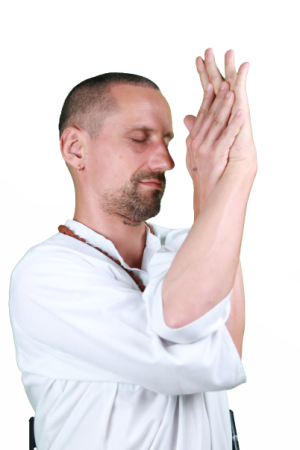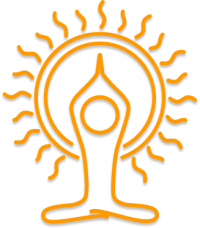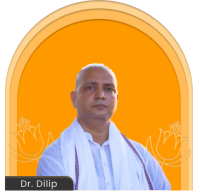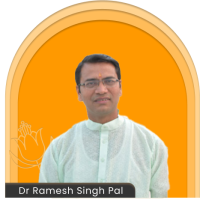
The 100-hour beginner yoga teacher training course in Rishikesh, offered by Satbodh Foundation, is a certified program designed to provide a solid foundation in yoga practice. This two-week residential course encompasses five essential components: hatha yoga asanas, pranayama (breathing techniques), bandha (energy locks), mudra (hand gestures), and meditation. Together, these components foster holistic growth, nurturing the physical, mental, and spiritual well-being of each participant. By aligning the body, this course helps achieve mental, physical, and psychological balance. Moreover, the 100-hour YTTC serves as a valuable personal development and spiritual transformation opportunity. It also acts as a stepping stone towards advanced 200-hour and 300-hour YTTC programs, affiliated with Yoga Alliance, USA.

Traditional Hatha Yoga incorporates various elements to provide a comprehensive practice. It emphasizes proper alignment and adjustment techniques, making it accessible for beginners. Along with the physical practice, Hatha Yoga prepares the mind for meditation, cultivating focus and inner stillness. The philosophy underlying traditional Hatha Yoga provides a deeper understanding of yogic principles and guides practitioners on their spiritual journey.

Classical Hatha Yoga: Immerse yourself in the profound and transformative practice of Hatha Yoga, which not only alleviates stress but also expands consciousness. Through this preparatory practice, the body undergoes purification, establishing a strong foundation for the exploration of advanced yogic techniques and spiritual growth.
Behavioral/Corporate Training: Elevate your skillset and conquer professional obstacles effortlessly by engaging in our specialized behavioral and corporate training programs. Our comprehensive offerings are tailored to enhance your competence, equipping you with the tools and knowledge needed to navigate the corporate landscape with confidence.


Circuit Training : Circuit training is a dynamic and versatile fitness component that complements traditional yoga practices. It involves a series of strength and conditioning exercises performed in quick succession, enhancing overall physical endurance, strength, and flexibility.
Static & Dynamic Meditation:Embark on a transformative journey of meditation as you delve into the profound realms of both static and dynamic techniques, immersing yourself in the timeless serenity of stillness and embracing the vibrant energy of movement.
Agility Movement: It focus on enhancing flexibility, balance, and coordination through dynamic postures and exercises. These movements help students develop physical strength and mental awareness, enabling them to adapt and flow gracefully through various yoga poses and sequences.
The 100-hour Yoga Teacher Training course in Rishikesh offers a practical curriculum that focuses on demonstration and application. Each subject is meticulously explained using scientific principles and experiential learning, ensuring a seamless transition from theory to practice. Experience the transformative power of yoga with our comprehensive Rishikesh yoga teacher training program.

In the traditional practice of Hatha Yoga, you will undergo a comprehensive training that focuses on Hatha Yoga asanas. These specific asanas are carefully crafted to enhance flexibility and act as potent tools for attaining both physical and mental well-being. By regularly engaging in these asanas, you prime your body to embrace and explore heightened states of consciousness, fostering a state of unwavering wellness and internal harmony.
Pranayama is a powerful yogic practice that involves the conscious control and regulation of the breath. By harnessing the breath, pranayama facilitates the free flow of vital life energy throughout the body, leading to improved physical health, enhanced vitality, and a prolonged state of youthfulness. Additionally, regular practice of pranayama can contribute to a life free from disease and promote overall well-being.
Shatkarma, a fundamental component of hatha yoga, involves the cleansing of both the subtle and gross aspects of the body. These practices play a crucial role in preparing the body for the transformative journey of yoga, facilitating the aspirants’ path towards liberation from lower states of existence. By purifying the physical and energetic channels, shatkarma supports the optimal functioning of the body, enhances vitality, and creates a harmonious environment for spiritual growth. Through these cleansing practices, practitioners can experience a deeper connection with their inner self, paving the way for profound transformation and self-realization.
In the context of hatha yoga, bandha refers to the practice of body locks, which help conserve and redirect vital energy for accelerating the yogic transformation process. There are four primary bandhas: Mula bandha, Uddiyana bandha, Jalandhara bandha, and Maha bandha. These bandhas serve as powerful tools for harnessing and channeling the life force within the body, promoting the integration of individual consciousness with the universal consciousness. Similarly, mudras, yogic gestures, are employed to facilitate the flow of energy within the body, establishing a connection between the individual’s life force and the cosmic life force. This harmonious union aids in the transformation of ego-bound consciousness into the expansive state of Cosmic Consciousness, where the unity of all beings and everything becomes apparent.
Our yoga program offers comprehensive training in both static and dynamic meditations, allowing you to explore different techniques and find your point of stillness within the ever-changing flow of life. By incorporating these meditative practices into your daily routine, you can cultivate a sense of inner calm and peace.Our experienced instructors will guide you through the process of meditation, providing demonstrations and personalized support to deepen your understanding and practice. You will learn techniques to quiet the mind, enhance focus, and cultivate a state of mindfulness. Embark on this transformative journey of meditation and unlock the potential for profound personal growth and spiritual awakening.
The theory part of our 100-hour yoga teacher training course in Rishikesh is meticulously designed to provide a complete and comprehensive understanding of the subjects covered. We delve deep into the various aspects that constitute the yogic whole, ensuring a well-rounded learning experience. Our course covers a range of subjects relevant to yoga teacher training in Rishikesh, allowing students to explore each topic in depth.

Our comprehensive program encompasses a wide range of components that are essential to a well-rounded yoga practice. These components include yogic philosophy, Ashtanga yoga, Raja yoga, Bhakti yoga, Karma yoga, pranayama, advanced meditation techniques, Patanjali Yog Sutra, and the therapeutic effects of yoga.
By diving deep into yogic philosophy, you will gain a profound understanding of the principles and teachings that underpin the practice of yoga. This knowledge will provide a solid foundation for your personal growth and transformation.
Gaining a foundational understanding of Anatomy and Physiology is essential for comprehending the profound impact of asanas and pranayamas on the human body. By delving into the intricate workings of our organs, systems, and structures, we can better appreciate how these practices can transcend the body’s limitations and facilitate our inward and upward spiritual journey.
With this knowledge, you will develop a deeper awareness of how specific yoga postures and breath control techniques influence different organs and systems within the body.
At the core of our training program is the mission to develop team-building skills that foster trust and loyalty within corporate workforces. We understand the importance of a cohesive and harmonious team dynamic in the corporate world. By incorporating this component into the theoretical training of our course, individuals aspiring for corporate jobs can greatly benefit from enhanced teamwork abilities.
Through a series of specialized exercises and practical techniques, participants will learn effective communication strategies, conflict resolution methods, and collaborative problem-solving skills. These valuable skills not only contribute to a positive work environment but also enhance productivity and efficiency within corporate settings.
Theoretical training forms a crucial aspect of our program, providing a platform for interactive learning that benefits both learners and instructors alike. It creates a space for engaging discussions and debates, fostering a two-way exchange of knowledge and enriching experiences. Through open dialogue, guests and learners can actively participate, raising thought-provoking questions that stimulate intellectual growth and deeper understanding. This interactive approach enhances the learning journey, promoting a collaborative environment where diverse perspectives can be shared and explored. Together, we cultivate an atmosphere of mutual learning and continuous growth.
Meditation philosophy encompasses the deep exploration of the nature of consciousness, the mind-body connection, and the profound mysteries of existence. It delves into the philosophical principles and insights that underlie various meditation practices, guiding us on a transformative journey of self-discovery and inner awakening.
Through meditation philosophy, we gain a deeper understanding of the fundamental principles and concepts that shape our perception of reality. It explores questions about the nature of the self, the nature of suffering, the nature of existence, and the interconnectedness of all things.
Book your spot now for a life-changing adventure that empowers mind, body, and consciousness.

The Yoga teacher training course in Rishikesh, spanning 100 hours, strictly follows the schedule set by Yoga Alliance USA. With each day of the course dedicated to 6 to 7 hours of intensive training, it comprehensively covers different facets of yoga. By embracing this disciplined approach, participants have the opportunity to experience profound illumination and transformation in their lives.
Time
Activity (1st Half)
![]() 5:30 am :
5:30 am :
Wake up
![]() 6:00 am :
6:00 am :
Herbal Tea
![]() 6:15 am :
6:15 am :
Body -Cleansing Shatkarma
![]() 6:30 am :
6:30 am :
Pranayama Kriya
![]() 7:30 am :
7:30 am :
21 Hatha Yoga Asanas
![]() 9:00 am :
9:00 am :
Breakfast
![]() 11:00 am :
11:00 am :
Yoga Philosophy
![]() 12:00 am :
12:00 am :
Anatomy & Physiology
Time
Activity (2nd Half)
![]() 1:30 am :
1:30 am :
Lunch
![]() 2:30 am :
2:30 am :
Rest
![]() 3:30 am :
3:30 am :
Alignment & Adjustment
![]() 5:30 am :
5:30 am :
Hatha Yoga Asanas
![]() 6:30 am :
6:30 am :
Meditation
![]() 7:30 am :
7:30 am :
Dinner
![]() 10:40 am :
10:40 am :
Lights Out


Satbodh Yoga School offers a serene retreat for trainees at its expansive ashram situated amidst the picturesque beauty of lush green forests, nestled in the tranquil Himalayas. We prioritize the personal space and solitude of every trainee, allowing them to immerse themselves fully in contemplation and assimilation. Accommodations are tailored to individual preferences, offering a choice between comfortable single or double rooms equipped with either A/C or non-A/C facilities.




Satbodh Yoga School, founded in 2016 by Yogi Simant, operates as a registered public charitable trust under Section 8 of the Companies Act, 2013. As a recognized yoga school by Yoga Alliance USA, we boast a team of highly knowledgeable individuals, including research scholars and doctorates in Sanskrit and yoga philosophy. Our teachers possess extensive experience and expertise in both traditional and modern teaching methods, utilizing effective tools and techniques. Our carefully crafted curriculum aligns with international standards set by Yoga Alliance USA, focusing primarily on classical hatha yoga. In addition to our 200-hour and 100-hour yoga teacher training courses, we offer specialized programs such as Satchit Kriya, Sat meditation Kriya, and corporate yoga.

Satbodh Yoga School boasts a skilled faculty comprising dedicated teachers who excel in the art of teaching. With a profound understanding of both traditional and modern modes of instruction, they utilize a wide range of relevant yogic tools and techniques. These teachers, driven by a passion for yoga, are not mere professionals but enthusiastic promoters of the practice. Their primary aim is to assist seekers in absorbing and assimilating the profound teachings of yoga, seamlessly blending ancient texts with modern tools to create a holistic learning experience.



This comprehensive program adheres to rigorous standards set by the foundation, ensuring that participants receive a well-rounded and in-depth training experience. By successfully completing this course and obtaining the certificate, individuals gain recognition for their commitment, dedication, and expertise in the field of yoga.
The uniqueness of the Satbodh Yoga School lies not just in the inclusive curriculum- traditional, yet well-suited to present time- but in its mission to transform life by spiritual light. It works and will continue to work to bring peace in the strife-torn world, churn out the Divine in man and integrate people from across the world in the indivisible Divine Unity through the means of the timeless yoga science.

Refunds are not provided if a participant is unable to complete the Yoga teacher training course. Satbodh foundation reserves the right to discontinue the participant’s course in such cases. However, in exceptional circumstances, participants may be allowed to complete the course at a later date with no additional charges, maintaining the same fee structure.
The course spans a total of 100 hours, which typically takes place over a specified period of time, such as two weeks or one month, depending on the specific schedule offered by Satbodh Foundation.
The course curriculum is designed to cover a wide range of yoga-related topics, including asanas (postures), pranayama (breathing techniques), meditation, yoga philosophy, anatomy, teaching methodology, and more. Participants can expect a comprehensive and well-rounded training experience.
While this specific course may not be registered with Yoga Alliance, it still provides valuable knowledge and training for aspiring yoga teachers. However, it’s always advisable to check with the foundation directly for any updates or changes regarding certification and recognition.
Upon completion of the course, participants will be equipped with the necessary skills and knowledge to teach yoga to others. They can explore opportunities to teach at yoga studios, fitness centers, retreats, or even start their own yoga classes or workshops.
Satbodh Foundation is committed to providing a supportive learning environment. Throughout the course, experienced teachers will guide and mentor participants. Additionally, the foundation may offer post-course support or resources to help graduates further develop their teaching skills and continue their yoga journey.
